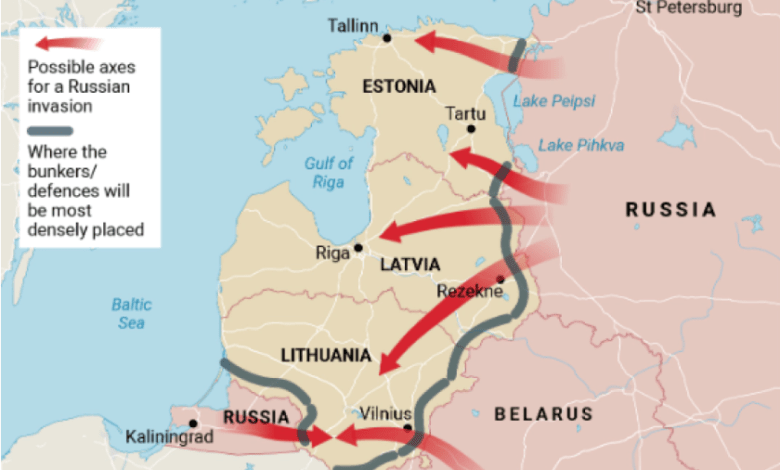Baltic states are concerned about the end of the war in Ukraine: Financial Times

Estonia, Latvia and Lithuania express concern that the end of the war in Ukraine may not reduce, but on the contrary, sharply increase the level of threats to the security of the Baltic region. Financial Times informs that the defense ministers of the three countries are warning: Russia will not stop at Ukraine and will use the post-ceasefire period to regroup, rearm and increase its military presence along NATO’s northeastern flank.
Estonian Defense Minister Hanno Pevkur said in an FT comment that Russia will quickly redeploy its forces after the end of active hostilities in Ukraine. According to him, this will lead to a sharp increase in military tension near the borders of the Baltic states.
“We all understand: as soon as the war in Ukraine is stopped, Russia will very quickly regroup its forces. This will mean that the threat level will increase dramatically.” Pevkur noted.
A similar position was expressed by the Minister of Defense of Lithuania, Dovile Šakalene, during a recent visit to Great Britain. She emphasized that one should not entertain illusions — Russia will not stop its aggressive policy after Ukraine, but, on the contrary, will accelerate the increase of its military potential. According to her, Moscow already has a huge army with combat experience, and this army will only grow.
Pevkur believes that of the approximately 600,000 Russian servicemen who are currently on the territory of Ukraine, about half – up to 300,000 – may be transferred to other regions. At the same time, he notes that most of them will not return to normal civilian life, since the salary in the army is 5-10 times higher than what they could receive at home.
The Baltic countries are particularly worried about the large-scale joint Russian-Belarusian exercises “West”, which are scheduled for autumn and will take place in the immediate vicinity of their borders. These trainings, according to the report FT, simulate a military conflict with NATO and involve the participation of tens of thousands of troops, tanks, aircraft and artillery.
At the same time, the countries of NATO’s eastern flank — in particular, Poland and Romania — reject the idea of sending their troops to Ukraine to form peacekeeping missions, saying that this would create gaps in their own defense.
“We cannot put NATO’s eastern flank at risk. We cannot be trapped when our troops are entrenched in Ukraine and our own security remains unprotected.” – concluded the Estonian minister.





